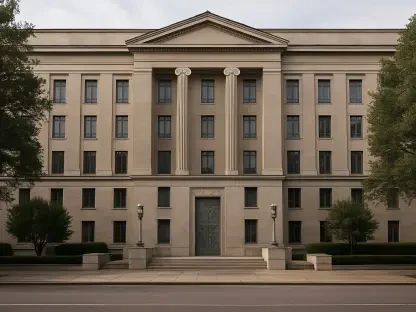Hong Kong has been steadfast in its mission to combat money laundering and transnational organized crimes. This commitment was prominently highlighted at the recent International Forum on Combating Money Laundering and Transnational Organized Crimes, where experts underscored the significance of international collaboration, robust legislative frameworks, and the leveraging of modern technology in addressing these global challenges. This article delves into Hong Kong’s multifaceted strategies and notable successes in tackling these pervasive issues, shedding light on the city’s exemplary role in international efforts to ensure financial integrity and security.
The Importance of International Cooperation
Hong Kong’s fight against transnational organized crimes hinges significantly on the necessity of international cooperation. Recognizing that criminal activities are often not confined within any one jurisdiction, Hong Kong has been deeply engaged in cross-border collaborations. The mutual legal assistance agreements and multilateral conventions in place have proven instrumental in facilitating these efforts. Through close cooperation with foreign jurisdictions, Hong Kong has succeeded in dismantling numerous criminal operations, demonstrating the efficacy of a united front in combating global criminal networks.
The city’s proactive stance in collaborating with other countries has led to remarkable achievements. Numerous joint operations with overseas law enforcement agencies have culminated in substantial seizures of assets tied to money laundering and various other serious criminal activities. These collaborative endeavors highlight the indispensable nature of international partnerships in dismantling entrenched criminal syndicates that operate across borders.
Moreover, Hong Kong’s commitment to international cooperation extends beyond law enforcement. The city regularly participates in international forums and symposiums dedicated to combating organized crime, where experts convene to share insights and strategies. These gatherings offer valuable opportunities for knowledge exchange and foster a spirit of collaboration among participating nations, ultimately enhancing the collective capacity to tackle organized crime.
Robust Legislative Frameworks
Central to Hong Kong’s success in combating money laundering and organized crimes is its robust and comprehensive legislative framework that effectively targets these issues. Key legal statutes, such as the Anti-Money Laundering and Counter-Terrorist Financing Ordinance and the Organized and Serious Crimes Ordinance, provide the necessary legal scaffolding for enforcement actions. These laws empower authorities to investigate, prosecute, and deter criminal activities within the ambit of financial crimes.
Hong Kong’s legal system is perpetually evolving, striving to align with international standards and obligations. This commitment to continually updating domestic laws ensures that they remain relevant and effective in addressing emerging forms of criminal activities. By staying ahead of evolving threats through legislative vigilance, Hong Kong maintains its leadership role in the global fight against financial crimes.
The enforcement of these laws is bolstered by dedicated agencies and specialized units within law enforcement. These entities tirelessly investigate and prosecute offenders, utilizing the full extent of the legal framework. The outcomes of their efforts include numerous successful prosecutions, which reinforce the deterrent effect of Hong Kong’s robust and dynamic legal system. This proactive legislative approach is crucial in maintaining rigorous standards and thwarting criminal enterprises.
Leveraging Modern Technology
In the modern era, advancing technology stands at the forefront of Hong Kong’s strategies to combat organized crime, significantly enhancing the city’s crime-fighting capabilities. By adopting and integrating technological innovations, Hong Kong law enforcement gains critical tools to detect and prevent criminal activities more efficiently and effectively. Advanced data analytics, surveillance systems, and other cutting-edge tools provide a significant advantage in tracking and monitoring suspicious activities.
Collaboration with academic institutions represents a key element of Hong Kong’s technological strategy. Partnerships with renowned universities, such as the University of Hong Kong, have catalyzed the development of innovative solutions for crime detection and enforcement. These collaborative efforts ensure that Hong Kong remains at the vanguard of technological advancements within the field of law enforcement, fostering ongoing improvement in crime-fighting measures.
The deployment of sophisticated technology extends to various aspects of crime prevention and prosecution. For instance, the use of advanced data analytics and surveillance systems has become instrumental in enabling authorities to monitor and track suspicious activities with greater precision. These technological tools have proven invaluable in securing successful prosecutions and disrupting organized criminal networks, underscoring the importance of technological integration in the fight against organized crime.
Successful International Cases
Hong Kong’s unwavering commitment to international cooperation has borne many significant fruits in its fight against organized crime. Through concerted joint efforts with other jurisdictions, the city has achieved notable successes in seizing illicit assets and prosecuting offenders. These high-profile cases exemplify the effectiveness of collaborative approaches in countering transnational criminal activities and disrupting criminal networks.
One prominent example is the seizure of considerable assets interconnected with fraudulent activities and money laundering schemes. By maintaining close cooperation with foreign law enforcement agencies, Hong Kong effectively traced and recovered these assets, showcasing the strength of international partnerships in combating financial crimes. These successes not only reflect the city’s dedication but also emphasize the collective power of coordinated global efforts in targeting money laundering activities.
Moreover, the judicial system in Hong Kong plays a pivotal role in enforcing legal assistance requests from foreign nations. This cooperation ensures that offenders face justice, regardless of their operational locales. The efficient handling of these requests further underscores the importance of a well-synchronized international effort in addressing organized crime. By upholding robust legal connections with other jurisdictions, Hong Kong fortifies its stance against global criminal networks.
Forums as Knowledge Hubs
International forums and symposiums serve as vital platforms for discussing common challenges and strategizing around effective measures to combat organized crime. Hong Kong remains an active participant in these global gatherings, contributing insightfully to the discourse on crime-fighting strategies. These events bring together a diverse array of experts from various fields, fostering a collaborative environment conducive to knowledge exchange.
Forums provide an impactful opportunity for Hong Kong to spotlight its successes and share best practices with the international community. By showcasing the city’s achievements, these events inspire other jurisdictions to adopt similar approaches, contributing to a more unified and effective global response to organized crime. The collective wisdom gained from these gatherings significantly enhances the global community’s ability to confront and address transnational criminal activities.
Discussions and deliberations at these forums often result in the development of innovative strategies and new initiatives. By maintaining active engagement with the international community, Hong Kong ensures it stays at the cutting edge of crime prevention and law enforcement. This proactive approach is crucial for staying ahead of evolving threats and reinforcing global security. The city’s dedication to continual improvement and international collaboration underscores its commitment to leading international efforts in combating organized crime.
Continuous Legal Vigilance
Hong Kong’s legal framework is far from static; it evolves continuously to keep pace with new challenges and threats that arise in the sphere of financial and organized crimes. The city’s commitment to maintaining state-of-the-art legal standards serves as a cornerstone of its strategy to combat these crimes effectively. Legislative updates and reforms are regularly undertaken to ensure that Hong Kong’s laws stay relevant and are robust enough to address sophisticated criminal activities. This vigilant approach to legal frameworks ensures that Hong Kong can adapt to the ever-changing landscape of financial crimes and maintain stringent law enforcement standards.
Such continuous legal vigilance involves not only updating existing laws but also developing new regulations and ordinances to close any potential loopholes that criminals might exploit. This proactive stance in legislative matters fortifies the city’s defenses against financial crimes, ensuring comprehensive coverage of various criminal activities. By remaining agile and responsive to emerging threats, Hong Kong bolsters its position as a global leader in the fight against money laundering and organized crime.
The dedication to legal vigilance is complemented by strong enforcement mechanisms, providing a robust foundation for combating organized crimes. Specialized law enforcement units and investigative agencies are empowered to utilize the full spectrum of the legal framework in their efforts to track down and prosecute offenders. This comprehensive approach, combining continuous legal reforms with diligent enforcement, enhances Hong Kong’s capability to address complex criminal activities and uphold financial integrity.
Conclusion
Hong Kong has remained committed to its mission of combatting money laundering and transnational organized crimes. This dedication was notably highlighted during the recent International Forum on Combating Money Laundering and Transnational Organized Crimes. At this forum, experts emphasized the importance of international collaboration, solid legislative frameworks, and the use of modern technology to tackle these global challenges effectively.
Hong Kong’s comprehensive strategy involves a combination of stringent laws, advanced technological tools, and cooperation with international partners. The city has implemented cutting-edge measures such as sophisticated surveillance systems and data analytics to detect and prevent illegal financial activities. Additionally, authorities have worked tirelessly to close loopholes in the legal system that criminals might exploit.
Over the years, Hong Kong has been recognized for its significant successes in addressing these complex issues. This includes the dismantling of several high-profile criminal organizations and the interception of substantial sums of illicit funds. These achievements have cemented Hong Kong’s reputation as a leader in the global fight against financial crimes.
By continually enhancing its approach, Hong Kong plays a critical role in international efforts to maintain financial integrity and security. Its rigorous and multifaceted strategies serve as a model for other jurisdictions aiming to strengthen their defenses against money laundering and organized crime. Through continued vigilance and innovation, Hong Kong remains at the forefront of global efforts to combat these pervasive threats.









